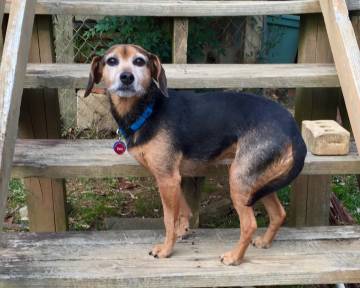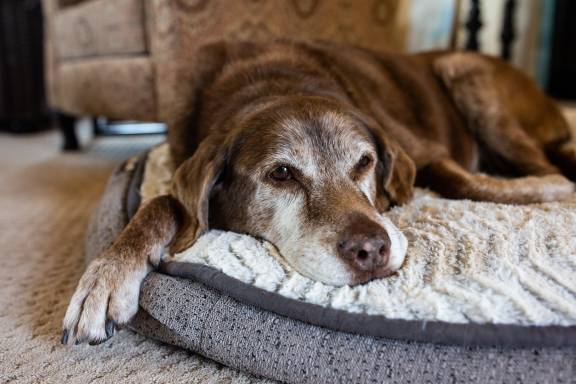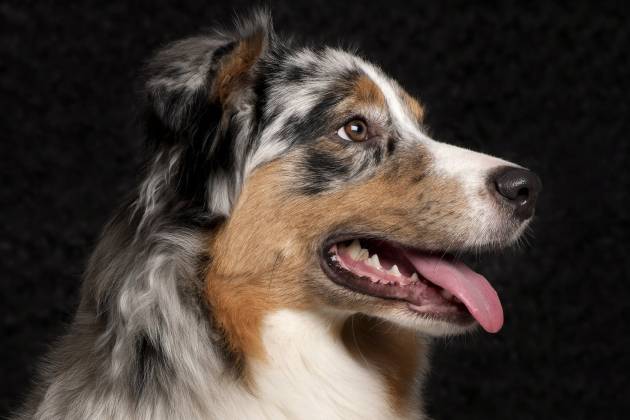Castor oil is a common product found in many of our homes! And it’s something that’s been around for ages. But what happens if a dog licks castor oil? Will he get sick? Is castor oil safe for dogs?
Connect with a verified veterinarian in minutes. Licensed vets are available 24/7 to answer your questions. No need to worry about your furry family member.
Has your dog licked some castor oil? Are you worried that castor oil will make your dog sick? If so, then you’ve come to the right place. We know it can be scary when your dog does something like this.
In this article, we’ll take a look at castor oil and whether or not it can make a dog sick. Let’s get started!
What is Castor Oil?
Castor oil is produced from the castor plant, Ricinus communis. The plant prefers to live in tropical and subtropical areas, where it can grow to about 9 ft tall! The plant has a woody stem and long, serrated leaves. The beans are produced in spiny capsules that contain up to three beans a piece. Each part of the plant can be toxic to animals, especially the beans.
While castor oil has been determined to be safe for animals, it can be toxic in large amounts. The problem is that the oil contains a harmful compound called ricin. Ricin is found in castor beans and in smaller amounts in castor oil.
Ricin disrupts cellular function, which can lead to cell death. When a dog eats a small amount of castor oil, the amount of ricin is fairly low. However, if a dog eats a large amount of castor beans, the amount of ricin increases and can cause problems such as castor bean toxicity.
Castor oil comes from the seeds of the castor plant, which are pressed to obtain the oil. The oil can be used in many ways. In fact, castor oil has long been used as a way to stimulate the digestive tract, relieve constipation, and more. The oil is also known to have anti-inflammatory properties.
The oil is thick and odorless and has been used since ancient times. Castor oil was used in ancient Egypt as oil for lamps and then later used in medicinal and cosmetic treatments. Most castor oil today is produced in India.
Castor oil also has excellent moisturizing properties. It effectively repels water, so when spread on the skin, the oil helps keep it hydrated. However, the oil can irritate the skin if used in large quantities.
Because castor oil is moisturizing, it is also used in hair growth serums. While it’s not been proven to help hair grow faster, the oil does help hair retain moisture.
Castor oil is also used in non-FDA-approved ways, including the induction of labor in women and killing bacteria and fungi. It can also be used to relieve headache pain, menstrual cramping, and wound care.
Castor oil today is used in many ways. It’s often used as a food additive, a mold inhibitor, and even packaging!
While castor oil has many uses and seems to be safe for humans, is it safe for dogs?
Castor Oil & Dogs
Castor oil has been determined to be safe for human use, and it’s not toxic for dogs. However, because castor oil can have a laxative effect, it is possible a dog could experience diarrhea after ingesting castor oil.
In most cases, if your dog has licked only a small amount of castor oil, he should be OK. However, if your canine companion has a sensitive stomach, then you may want to monitor him for any signs of diarrhea or even vomiting.
If your dog does happen to develop diarrhea and/or vomiting, and these last longer than 24 hours, then be sure to call the vet. The concern is that long bouts of diarrhea and vomiting could cause your dog to become dehydrated.
In fact, castor oil has long been used as a way to stimulate the digestive tract, relieve constipation, and more. The oil is also known to have anti-inflammatory properties, according to Wholesale Botanics.
The vet may want to see your dog and check him for dehydration. They will also have medications that can stop diarrhea and vomiting.
So, it’s safe to say that most dogs should not experience any problems from just one or two licks of castor oil. But, if your dog has more than that, then it’s a good idea to call the vet!
Connect with a verified veterinarian in minutes. Licensed vets are available 24/7 to answer your questions. No need to worry about your furry family member.

Julie
Julie is a graduate of the University of North Carolina, Wilmington, where she studied Animal science. Though contrary to the opinion of her parents she was meant to study pharmacy, but she was in love with animals especially cats. Julie currently works in an animal research institute (NGO) in California and loves spending quality time with her little cat. She has the passion for making research about animals, how they survive, their way of life among others and publishes it. Julie is also happily married with two kids.
Review symptoms, medications & behavior to keep your pets healthy with a Vet Online in just minutes.
Ask a Vet Live Now



